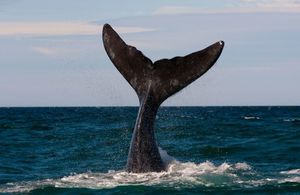New wave of bombardment is an attack on Ukrainian civilians’ way of life: UK statement at the Security Council
Thank you President. Thank you again to Under-Secretary-General DiCarlo for your briefing.
And thank you to Resident Coordinator Brown for your invaluable update on the situation on the ground and the work the UN is doing in the toughest of circumstances.
So far, this war has killed, maimed and psychologically damaged thousands of people. Millions have been forced to flee. Ukrainian towns and cities have been reduced to rubble, with evidence of atrocities left behind in the ruins. We have heard unbearable stories of sexual violence.
And the real objectives of the invasion have been exposed by Russia’s attempts to suppress Ukrainian national identity and culture and illegally annex Ukrainian land; an act widely condemned by the UN membership last week.
Unfortunately, an already appalling situation appears to be getting worse.
Under the command of Colonel General Sergei Surovikin, a man infamous for brutalities against civilians in Syria, we have seen a renewed campaign of drone and missile strikes across Ukraine.
Heavily populated areas have been hit, as well as playgrounds, traffic in rush hour, and apartment buildings nowhere near frontlines or military installations. A new wave of bombardment has deliberately targeted critical national infrastructure, leaving some thirty per cent of Ukraine’s power stations damaged or destroyed. These are attacks on Ukrainian civilians’ way of life. And they are a clear breach of international humanitarian law.
They are egregious in their own right, but even worse as winter approaches. Russian attacks mean Ukrainians are losing the ability to heat their homes and cook their food.
The intent behind these attacks is clear. Russia is seeking to subjugate Ukraine by terrorising civilians. And it is doing so using weaponry obtained from Iran in violation of Security Council resolution 2231.
Now Russia is trying to distract us with attacks on the UN’s integrity and on its mandate to investigate. But resolution 2231 is clear. It asks the Secretary-General to report to the Council on its implementation and there is extensive precedent for site visits.
Of course the key issue is that, wherever these drones come from, their use against civilians is barbaric.
President, Russia’s actions are illegal and immoral, and they must come to an end.
So once again, we call on Russia to stop its disinformation and misdirection and its accusations that the West is somehow responsible for its atrocities.
We call on Russia to heed the calls of the international community, respect its obligations under international law and stop attacks on civilians, energy infrastructure, hospitals and health facilities. And we call on Russia yet again to end this war and return to the path of dialogue it abandoned in February.
Finally President,
We recognise as others have the wider negative impact of Russia’s war.
The positive impact of the Black Sea Grain Initiative on global grain prices is clear and we have heard more about that today. We welcome and encourage efforts by the Secretary-General to ensure the continuation of the agreement. You have the UK’s full support.

